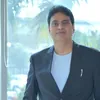Clocking Rs 60 Cr turnover, this doctor’s medical devices manufacturing company supplied ventilators during COVID-19
When he came to India, Vinod Kohli saw that most medical devices were either inadequate in quality or were being imported. This compelled him to start Allied Medical Limited, a medical equipment manufacturing firm, in 1982.
In 1979, Vinod Kohli, who was a practising doctor in the UK, came to India for his brother-in-law’s wedding. On his visit, he got an offer from Delhi’s Ganga Ram Hospital to handle some cases in India. With an option to either stay or go back, Vinod chose to extend his stay and find opportunities upon coming across “good quality cases” and “professional challenges”.
While working as an anesthesiologist, Vinod saw India’s weak medical infrastructure. “I saw that facilities, medical equipment, were not adequate. Moreover, most of the equipment was being imported,” he recalls in a conversation with SMBStory.
This got Vinod thinking. Initially, he helped his colleagues, hospitals and others in the sector to source medical equipment from the right people. He would connect them to manufacturers in Europe, especially the UK. Gradually, he took a deeper dive and started importing and selling some medical equipment items while simultaneously running his medical practice.
Vinod started Allied Medical Limited in 1982. In the 1980s and 1990s, he mostly helped entrepreneurs build hospitals with adequate medical facilities, while manufacturing, importing, and supplying life-saving medical equipment, and consumables. When the business expanded and started scaling, Vinod left his medical practice to fully concentrate on the business.
Vinod says his family consisting of doctors felt “it was too much of a risk.” He says, “I had a great practice. It was not that I needed a change. But it was a challenge I was willing to take.”
Initial challenges
Vinod says that initially, finding good vendors was a major challenge. He explains, “In foreign countries, you have good vendors so it is easier to get all components. In India, there were no vendors available. Additionally, the quality of their materials was so poor that we felt it was not possible to carry on.”
To address this issue, he bought the equipment to manufacture all the components. Today, when he looks back, he realises the blessing of the decision they made as they were able to expand their manufacturing capability and reduce the company's dependence on imports is reducing year after year.
Another challenge was the high cost of borrowing and high custom duties. He said that the rate of interest in those days was 22.5 percent. Moreover, custom duties on medical equipment were as high as 120 percent. In the 1980s, exports and imports were monitored under the Open General License (OGL) category. Goods under OGL were free for import and had, relatively, less restrictions. However, very few items were listed in the life-saving equipment category which further resulted in heavy financial burden on manufacturers.
Vinod says he had to visit the customs office several times to discuss the need to expand the list of life-saving equipment.

Becoming competitive
In the years starting from 2000, India’s healthcare sector saw some progress in line with the boom in the economy. The emergence of private hospitals improved the space and made healthcare more efficient.
“The private hospitals were very demanding. Most of the doctors working there were exposed to the western ways of practising medicine. So they were more receptive,” he says.
Vinod says that over the years, the imports have gone significantly down significantly with India better capable of sourcing good quality raw materials, especially metals which are used in the manufacturing.
In 2000, both his sons — Aditya Kohli and Akhil Kohli — joined the business. This was a turning point for the company also as they got into full time manufacturing.
Aditya Kohli is a management graduate whereas Akhil studied medical engineering. Vinod says that both of them played a key role in getting quality certifications for the company that had been operating for a long time. The company has ISO13485, European CE Mark, and BIS License certifications.
Today, Allied Medical designs and manufactures several life saving equipment including anaesthesia machines, ventilators, consumables, infusion pumps, ECG machines, etc. It clocked a turnover of Rs 60 crore in FY 2020.
The company has four manufacturing facilities across Gurugram and Shimla. Though Allied Medical manufactures most of the components, it sometimes relies on imports for some components which are not available. Vinod says that the government needs to be a little more receptive and support the health sector in terms of ease of doing business, and infuse more capital.
He says that the medical devices industry is extremely competitive. And to stay afloat, India needs relaxation in taxes and other areas.
Gearing up for COVID-19
Today, Allied Medical is only focused on manufacturing life-saving medical devices.
At present, they manufacture 3,000 ventilators in seven models on a monthly basis. Vinod says that COVID-19 is an “unfortunate event” but it has made them more confident about their plans to manufacture life-saving products. He says that the company rose to occasion and supplied a couple of thousand ventilators to the government as well.
“People are concerned about health now. Going forward, there will be an increase in demand for medical devices of all types,” he adds.
Vinod is also looking forward to opening a manufacturing unit in Bhiwadi, Rajasthan, which they are developing to increase the scale of their operations. Aditya says this facility is going to be the largest life-saving equipment manufacturing facility in India with a space of 2 lakh sq ft.
The business has also launched a subsidiary that will manufacture and supply components to other manufacturers in India and abroad.
Edited by Kanishk Singh









